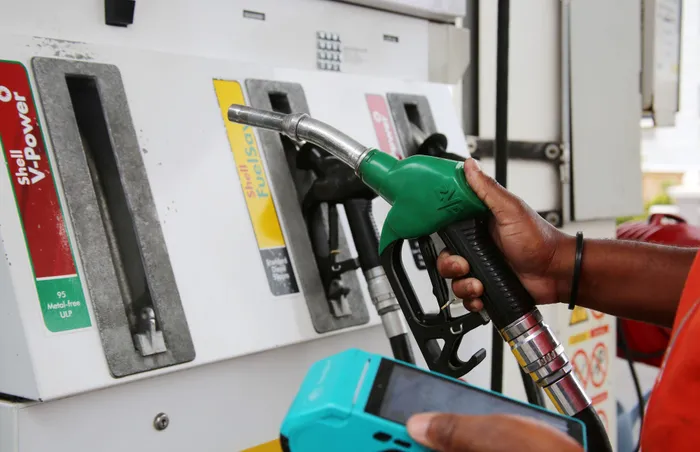Fuel price hike set to hit South Africa's middle class hard

Brace yourself for another fuel price hike, with the Central Energy Fund confirming that increases are on the way.
Image: Tumi Pakkies / Independent Newspapers
FROM Wednesday, July 2, many South African drivers will feel an even tighter squeeze on their wallets, especially those who rely on diesel-powered vehicles.
The Central Energy Fund (CEF) has confirmed that fuel prices are set to rise again, and it’s diesel drivers who will be hit the hardest. For many middle-class South Africans who are already cutting back on luxuries and watching every cent, this is yet another financial blow.
Diesel, often the go-to choice for families with bakkies and SUVs, is expected to go up by a hefty 84 cents per litre. That may not seem like much at first glance, but when you consider that these vehicles have large 75-litre tanks, it quickly adds up.
Filling such a tank will now cost around R67 more just in wholesale price. Add the typical 15% markup that many filling stations charge, and you're looking at an increase of around R77. That’s money that could have gone toward groceries, school supplies, or simply keeping up with ever-rising monthly expenses.
And it’s not just private vehicle owners who are affected. The 500 ppm diesel used in agriculture, transport, and manufacturing is also going up by 82 cents a litre. This means the cost of moving goods, farming equipment, and even some public services could rise, eventually pushing up prices on store shelves.
Petrol isn’t escaping the hike either. Unleaded 95 is set to climb by 55 cents a litre, while 93 will go up by 52 cents. It might not sound as bad as diesel’s spike, but it still means more money spent at the pump. For example, filling a 60-litre petrol tank, common in mid-sized SUVs, will now cost R33 more than it did in June. Even smaller vehicles with 45-litre tanks will need an extra R24.75 for a full fill-up.
For the average middle-class family, these are not just numbers. These increases hit right where it hurts, in the monthly budget. School runs, work commutes, weekend visits to family, and shopping trips all become more expensive. And when transport costs go up, so does the price of everything else.
The cause of all this? Tensions in the Middle East have shaken global oil markets. Mid-June saw Israel launching strikes on Iran, targeting nuclear and military sites. Iran struck back, and when the United States got involved a few days later, the situation escalated further.
The result was a spike in oil prices, as investors worried about disruptions in oil supply from the region, home to some of the world’s biggest producers. While the rand put up a decent fight during the fuel price review period, it could only soften the blow by about 15 cents.
So here we are, in July 2025, with many South Africans, especially those in the middle class, digging deeper into their pockets just to keep going. It’s another reminder of how global events can ripple into everyday lives, affecting everything from the cost of driving to the price of bread.
In times like these, many families are left asking the same question: how much tighter can we pull the belt before it snaps?
Related Topics: